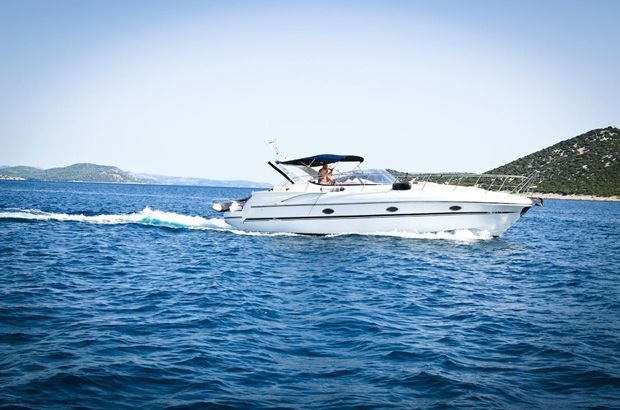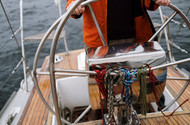Top Questions and Answers About Marine Battery Wire
13th Jan 2023
When it comes to marine battery wire, there are a lot of questions. From what type of wire to use to how frequently to inspect it, there’s a lot to consider. To help you make an informed decision, we’ve compiled a list of our top FAQs about marine battery wire.
1.What’s the Difference Between Marine Battery Wire and Regular Wire?
The two main defining traits of marine battery wire are flexibility and individually tinned conductors. The flexibility helps the wire navigate the tight recesses within a boat and establish secure connections; the tinning on the wire conductors protects them from corrosion.
2. Why Is Marine Battery Wire Tinned?
Marine battery cable is made of many strands of individually tinned copper conductors; these are tinned to protect the copper conductors, wherever exposed, from corrosion. Marine grade wire is also often made with protective insulation that is resistant to bases, acids, oil, gasoline, and abrasion. Some marine grade wire even features UV-resistant insulation.
3. What type of wire should I use for my marine battery?
The type of wire you need for your marine battery depends on several factors, including the type of battery, the voltage, and the environment the wire will be in. Generally, you’ll want to use tinned copper wire for your marine battery. This type of wire is resistant to corrosion and will stand up to the harsh marine environment. It’s also important to make sure the wire you use is UL listed and rated for the voltage of the battery.
4. How do I know what size marine wire to use for my marine battery?
The size of the wire you need depends on the amp draw of the battery and the length of the wire run. For example, if you’re running a 12-volt battery and the wire run is 10 feet, you’ll need a wire that’s at least 8 gauge. If the wire run is longer, you’ll need to use a larger gauge wire. Generally, the heavier the gauge of the wire, the better.
5. What type of connectors should I use for my marine battery?
When connecting your marine battery, you want to make sure you use the right type of connectors. The most common type of connector for marine battery wire is a ring terminal. This type of connector is easy to install and provides a secure connection. Additionally, you may also want to use heat shrink tubing or a marine-grade terminal boot to protect the connection from the elements.
6. How do I protect my marine battery wire and cable from corrosion?
Corrosion is a major issue when it comes to marine battery wire. To protect the wire from corrosion, you’ll want to use tinned copper wire and make sure all the connections are properly sealed with heat shrink tubing or a marine-grade terminal boot. Additionally, you may want to coat the wire with a corrosion-resistant coating to further protect it from the elements.

7. What type of marine battery wire should I use for a trolling motor?
When wiring a trolling motor, you’ll want to use a larger gauge wire than you would for a standard marine battery. Generally, you’ll want to use a 10-gauge wire for a 12-volt trolling motor and an 8-gauge wire for a 24-volt trolling motor. However, these are general guidelines only and not concrete recommendations; always refer to the manufacturer's specifications or defer to the expertise of a marine mechanic or electrician. Additionally, you’ll want to use tinned copper wire and make sure the connections are sealed with heat shrink tubing or a marine-grade terminal boot.
8. What type of marine battery wire should I use for a dual-battery setup?
If you’re wiring a dual-battery setup, you’ll want to use a wire that is heavy enough to cover the current draw of both batteries and will provide a secure connection. Additionally, you’ll want to use tinned copper wire and make sure the connections are sealed with heat shrink tubing or a marine-grade terminal boot.

9. How do I properly secure my marine battery wire?
When securing your marine battery wire, it’s important to make sure the wire is properly secured and won’t move around. Start by running the wire through a loom or conduit and then use cable ties or clamps to secure the wire in place. Additionally, you may want to use a marine-grade adhesive to further secure the wire and make sure it won’t come loose.
10. How often should I inspect my marine battery wire?
It’s important to inspect your marine battery wire on a regular basis to make sure it’s in good condition. Generally, you should inspect the wire at least once a year. During the inspection, check the connections for corrosion and make sure the wire is securely fastened. Additionally, look for any signs of wear or damage and replace the wire if necessary.
11. Can You Use Automotive Battery Wire Instead of Marine Grade Wire?
Automotive battery wire should not be used in marine environments because it lacks the protective tin coating and extra flexibility of marine battery wire.
Quality Marine Battery Wire and Cable at Excellent Prices
We hope this list of FAQs about marine battery wire has been helpful. If you have any additional questions, please don’t hesitate to contact us. Our experienced team of technicians is here to help you make the right decisions for your boat and ensure you have a safe and reliable electrical system.

